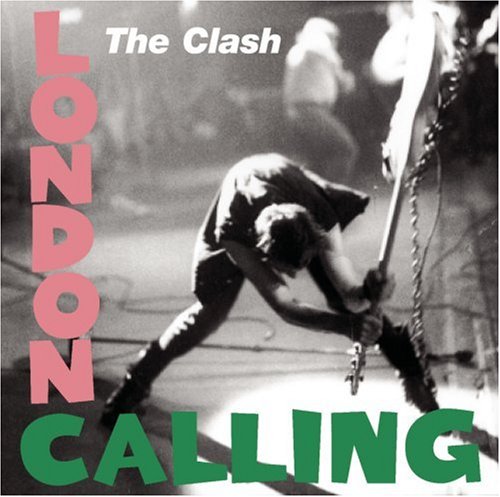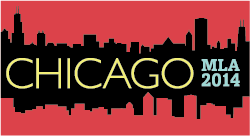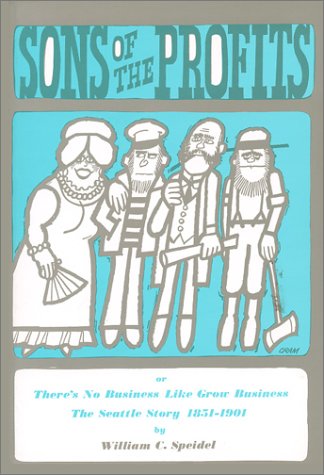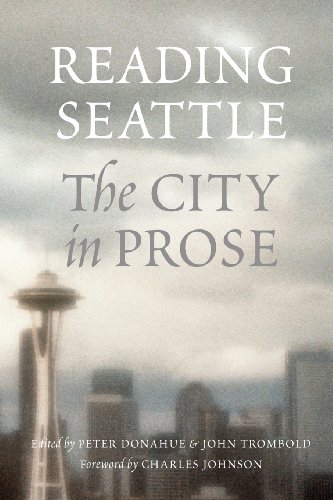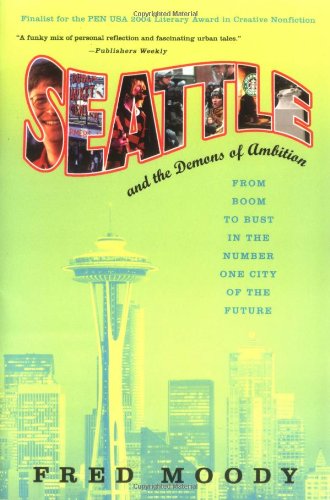When I began reading Verlyn Klinkenborg’s Several Short Sentences about Writing, I thought the same. It’s so graceful, so winsome, so wise; when will it crash into a tragic heap?
Read MoreThe Talk
It occurs to me that the venues we have for discussing work in academic journals is deficient.
Read MoreThe Apps Arms Race
This article came just in time. I'm drowning in apps.
Read MoreEuropean Efficiency: Academic Job Search Edition
As everyone knows, Europeans, compared with Americans, are just plain good at certain things.
Read MorePoet-Dad?
Eight months ago, I stopped writing poems. It wasn’t a conscious decision, it just stopped happening, which was odd, since I’ve been writing poems pretty consistently since I was 15.
Read MoreJurado Juvenalia
Here's a song from Damien Jurado that I'm guessing even longtime fans haven't heard. It's from a sampler for a nascent record label that, in the pre-Kickstarter era, never got funded. I'm not sure who was behind it, but from the line-up, I'm guessing this was an early side-project of Aaron Sprinkle's. It's one of my favorite collections, featuring bands that, I think sadly, never put out a full-length record, (esp. Moonboy and Paul Mumaw) but whose work on this suggests they should have. It features an acoustic track from Soulfood 76--another early favorite of mine--and a remix from Poor Old Lu. Get "Persuading You Near" (1996) from Working Man Records, if you can find it in a bin. Enjoy.
And because my friends in a Facebook group asked, here is another song from the record from an early Jurado band called ”Moonboy.” It’s my favorite track on the sampler and I wish they had made a full-length album.
A Response to Critics of Academia →
The Media Question
Here's the problem: I fond of and serious about listening to music, but can't find a medium to which I should give my devotion.
Read MoreIll-lustrous Academic Job Market
I've looked for so long with trepidation at this moment, it's hard to explain, even to myself, the peace I feel having arrived at it. Bred of hyperbolic warning, the chanting Chicken Little cant had built up for years to say that when you go up on the job market, you will find it a wasteland, cry out for thirst and you will find no water...
Read MorePoetry of the Crimean War
With world attention fixed once again on the Crimean Peninsula, again due to provocation from Russia, let’s remember, as U.S. Congressional Republicans use the occasion to heckle from the sidelines—if only we’d been more belligerent, aggressive, if only more foot-stamping from across the ocean, then maybe 4-500 years of Russian foreign policy would’ve been reversed, and they’d act against type—that a similar affair happened some years ago. What started as a territorial dispute eventuated in a World War in which America was very nearly embroiled.
Televised busts will probably be walking the public through much of that history in the coming weeks. Perhaps they already are. I wouldn’t know, having killed my television 15 years ago on the advice of some bumper stickers. It will be flash-summary, of course, full of posturing and bravado, and little in the way of scholarship. I want here only to point out that whatever else the Crimean War gave us (and it gave us a few things including the first tactical use of both railroads and telegraphs) it also gave us much of our finest war poetry.
Not that I don’t appreciate Melville’s and Whitman’s civl war verse. I do. I think that conflict’s literary contribution, however, (still largely unsung) took the form of hymnody, private correspondence, and political speech. And I appreciate Winifred Owen’s work on WWI, especially Dolce et Decorum Est, which I regularly teach in my History of Poetry classes at UW. And Yeats on Ireland and Auden of WWII, and even, weirdly, much of the Taliban poetry on the War of American Aggression or Operation Iraqi Freedom, depending on whose branding you prefer. One needn’t agree with their politics or methods, but their rebellious, anti-Western verse is stirring stuff.
None of it has anything on the Crimean War. I don’t mean to march through it all here. Most readers know Tennyson’s Charge of the Light Brigade, an account of a military disaster (due apparently to a misheard order) rendered as a heroic act of pure bravery and self-sacrifice. For nearly 100 years, it was the most memorized poem in the language.
Cannon to right of them,
Cannon to left of them,
Cannon behind them
Volleyed and thundered;
Stormed at with shot and shell,
While horse and hero fell.
Much of the Crimean War poetry has been analyzed and collected by Stefanie Markovits and Orlando Figes. Both mention, though neither of them dwell on, my favorite Crimean War poems: Sonnets on the War, by Alexander Smith and Sydney Dobell. Smith and Dobell are two of my favorite poets anyway, members of the Spasmodic School, writing in Britain in the 1850’s. After each writing astonishingly successful first books, they turned to this little collaborative book of sonnets, neither taking credit for whose sonnet is whose, or whether they were all written together somehow.
Sonnets on the War covers British positions on Sebastopol, Hungary, the infamous cavalry charge, on whether America should enter the war, on Florence Nightengale, and much else besides. Here’s one called “Self.”
The War rolls on. Dark failure, brave success
Deafen our ears. But little power to touch
Our deeper human nature lies in such.
Doth victory make an infant’s smile the less?
Each man hath his own personal happiness,
In which--as creep the cold-enfeebled flies
In the late beam--he warm and basking lies.
Each hath his separate rack of sore distress.
No hand can give an alms, no power consoles;
We only have our true hearts and our souls.
In leaguered forts, water with patient arts,
They draw from their own court or garden-plot;
So from the deep-sunk wells within our hearts
We draw refreshment when the fight is hot.
I think that’s just great. The poems are patriotic, but not boosters, inspiring, but not hawkish. More importantly, they’re honest. Tennyson’s poem asks “When can their glory fade?” The answer is: it fades as soon as one finds out that 600 wasted their lives because a general was ineffectively in command of them, and/or their testosterone charge short-circuited their hearing and broke the chain of command. “Honour the Light Brigade,” we are therein commanded. It’s all one-sided.
Smith and Dobell’s poem acknowledges both “brave success” and “dark failure,” which is necessarily the sum of any military engagement. It acknowledges too the uselessness of language as a cure for pain (brave for poets, but again: honest). “Each hath his separate rack of sore distress./ No hand can give an alms, no power consoles,” the poem admits. How much better if we responded to the pain of other’s more often with that kind of realism?
Here’s the opening of one called “Meditative.”
We could not turn from that colossal foe,
The morning shadow of whose hideous head
Darkened the furthest West, and who did throw
His evening shade on Ind. The polar bow
Behind him flamed and paled, and through the red
Uncertain dark his vasty shape did grow
Upon the sleepless nations…
I write here and there about the Spasmodic poets, and how, though sometimes studied for their jarring popularity in the mid-Victorian era, they deserve a broader audience for the sheer quality of their writing. Sonnets is a good place to start. Read the whole collection here.
How to Hear Me
Inspired by a blog post I recently read that reminded me I should be listening to jazz music (an activity I practice, but of whose import I need sometimes to be reminded), and sitting at the Civic Center Library anyway, I wandered over to the CD section (nowhere near as well-stocked or organized as the Highlands Ranch Library in CO) and began to peruse, looking for Lester Young, Gerry Mulligan, Duke Ellington, Coleman Hawkins: my usuals. Finding none, (although I did get the excellent Keith Jarrett/Charlie Haden record "Jasmine,") I indulged in my usual, and usually-reliable assessor-ship of books by their covers. And was led therefrom to a record by Gil Scott-Heron called "I'm New Here" (XL Recordings, 2010). I liked its font, mainly, and the photographic composition, and how the colors mimic those of the epic Clash record "London Calling."
"I'm New Here" is not much of a production. It experiments with samples, spoken word, and light instrumentation, but is not really experimental, or moving or smart. Nothing that happens on this record isn't better done by Sam Prekop on the Sea and Cake records, or Dan Deacon, or Bill Callahan, all of whom I recommend broadly.
The reason I'm bothering to say any of this, though, is because I admire Scott-Heron's artist statement, printed in the liner notes. Here is what he writes:
There is a proper procedure for taking advantage of any investment. Music, for example. Buying a CD is an investment. LISTEN TO IT FOR THE FIRST TIME UNDER OPTIMUM CONDITIONS. Not in your car or on a portable player through a headset. Take it home. Get rid of all distractions, (even her or him). Turn off your cell phone. Turn off everything that rings or beeps or rattle or whistles. Make yourself comfortable. Play your CD. Listen all the way through. Think about what you got. Think about who would appreciate this investment. Decide if there is someone else to share this with. Turn it on again. Enjoy yourself.
I appreciate everything the artist has to say here. That his work deserves some respect. That respect involves giving it space (as well as not stealing it). I like how concerned he is with my comfort. How he insists I listen all the way through. When was the last time I did that? He suggests that appreciating music is a communal endeavor (it used to be for me, and isn't any longer) without sounding like he's marketing.
Mind you, I didn't do any of these things. I listened to it in my car, amid traffic, actually, but in my current domestic arrangement, that's the most peaceful time I have. I also fail to see what is lost by using headphones. Most people don't possess hi-fi equipment sophisticated enough to outplay their iDevices anyway. And wouldn't using headphones add to the distraction-free listening experience he wants us to cultivate at first anyway?
Still, though he created all that space and attention only to fill it with mediocre work, Gil is my new hero (having just supplanted John Roderick, who has done nothing to fall from my graces, and who is consistently smart about art-making) for demanding it in the first place.
Notes to Conference Presenters, or, What I Learned not to do by Attending MLA
Offered here for the edification and instruction of the people, and for the benefit of the world, some negative lessons in conference presentation, courtesy of my time at MLA Chicago. Many young academics will be in this thing for a long while; keep these commandments, that it may go well with you.
Read more slowly
Almost no matter how slowly you're reading now, go slower.
You don't actually have to read the whole time
Take a minute and speak, elaborate, share an anecdote. Remember, your audience has been in sessions all day, and is in no position to welcome an indiscreet wash of verbiage.
Remember: a conference paper is not quite the same as a journal article.
It's shorter, and needs less evidence/support. They can be livelier, and take more chances, since you won't be on record for the ideas therein. We might have an actual conversation following, and part of your job is to help make that happen.
To that end, Dear Conference Organizers: demand copies of the essays before the conference, and distribute to the panel.
I've been on a dozen panels and never had this happen. The first time I hear my co-panelist's paper is the moment s/he shares it with the audience as well. This means my "response" to the other papers is knee-jerk, scattered. It's no trouble to request the papers two weeks out and give us a chance at real intellectual engagement: argument, even.
You do not have to say "unquote."
We know the quote is over because you stopped speaking in iambic pentameter. Also, we know the work and the can tell your prose from, say, Wordsworth's. If these fail, you can signal with your tone, or a pause, that the quoted material is over.
Men, if at all possible, try wearing suits that fit.
We do have to stare at your body for an hour, after all. Ladies, you're doing great.
Oh, and OMG, while you may use an iPad to take notes, you may not type notes on an old laptop during a presentation.
Especially if you have clickey, manicured nails.
John Keats: A New Life by Nicholas Roe
Notes Toward a Review
I thought Really? Another Keats biography? I'd just finished Stanley Plumley's Posthumous Keats, and Daisy Hay's Young Romantics, and what with Jane Campion's "Bright Star" (Apparition LLC 2010), I felt the moss'd cottage trees bent with apples, the gourds all swollen, and hazel shells plumped, if you take my meaning. I liked all these, mind you (though Plumley's less after I saw him read from it without force or elaboration as part of the Seattle Arts and Lectures program). Plus, I've written a chapter about Keats in this book, and recently published another article about him here. When I heard about Nicholas Roe's new Keats bio, I thought I would safely pass.
But then I mentioned it to my friend Frederick Burwick, who claimed it on the spot "required reading." "No negotiating," he continued, "it's just stunning." And he was right--now that I've got my hands on it (thanks, SPU library for my pre-move copy, and Douglas County Libraries for my post-) I see just what he meant.
I don't much appreciate the phrase "tour-de-force," since it is used indiscriminately to describe everything from blockbuster films to meals, but this book really is a tour of forcefulness: one never settles in, grows comfortable in the intellectual pressure. Three hundred pages in, it's still startling. There are also aspects of the Keats story that I never quite understood that this biography marks and lights.
To name just a few:
Twittery Politico
Keats is an aesthete: perhaps he is the aesthete (pre-Wilde, obviously). But Roe brings out just how political the work is, and was taken, in the poet's life, to be. He's no Shelley, but the choices of his friend group, his places of first publication, his identification with Leigh Hunt, even his grammar school marks him as a liberal, if not quite a radical.
Incision
Everyone knows that Keats was a trained surgeon, but I hadn't processed fully a) how far along he was, and b) how much mileage he got out of medical vocabulary. No mere student of anatomy, according to Roe, Keats would've seen patients, removed limbs, dissected rotting corpses. The thought of that makes him less a wilting flower than he is often cast as. Moreover, his poetry becomes, as Roe shows, markedly more muscular (more sanguine, especially) during the period of his apprenticeship.
Hunting
Leigh Hunt is a giant. Now, he's an easy sort to make fun of: less talented than everyone around him, treated less well by history, and fawning. But during Keats' life, he was huge. As a cultural figure, and emblem of resistance, and a taste-maker, and especially as an idol for a young poet like Keats. Hunt published Keats' first poem, introduced him to others who would be seminal for his life and aesthetic, and guided his early work toward the epic and historical. We have much for which to thank Leigh Hunt, if not for his own work, then for much of Keats'.
I'm not writing a full review, since I'm doing so much else just now, but for anyone who reads Romanticism, this is a second to Burwick's claim: Roe's book is required reading.
Why I'm Leaving Seattle pt. 2
I posted a partial list of reasons why I'm leaving Seattle, my long heart's home over here, and then I thought of another one. This is just one more reason: not because the gym matters so much, though I've gone there (albeit not a frequently as I ought to have done) since the first week I moved here, but because it's indicative of the type of changes--all for the worse, it seems to me--that businesses in the city keep making on both large and small scales.
My Gym Lost its Soul
For ten years, I've been a member of Rain Fitness. It's the most beautiful gym I've ever seen, though, it should be noted, I'm no connoisseur thereof. There are 3/4 length windows looking out over Elliott Bay, past a stand of aspens on a little rounded hilltop that might have been arranged by the Olmsteads. When treading the mill, the weary animal gets a view at least: ferry traffic, seagulls, the play of light on water. Moreover, the machines are fitted with brown leather that accents the gorgeous 100-year old wood floors. I loved it. In the last few years though, they've made a number of changes, all for the worse. To wit:
They bolted the windows shut
I don't know from what sick impulse this decision springs, but it likely has to do with saving a few cents in heating costs (which they have to make up for in electricity costs since now the fans are always on). Remember the sea view I was talking about? That means we used to get sea breezes. There is a reason every health spa used to be built on the ocean: the very air itself is restorative. A tinge of salt, the smell of salmon running, brought a feeling of freshness to a place that might otherwise smell like a gym sock. One day, every opening window in the place was bolted shut. Now we have canned air (there never seems to be enough) and constantly-rotating ceiling fans, that make the place feel dry and irritating to glistening skin.
They got rid of the tanning bed
Some might cheer this decision, since overuse of tanning beds is linked in some specious studies to skin cancer in the leathered elderly, but after a few months of a Seattle winter, 10 minutes in a warm place and a little light therapy went a long way toward spiking the serotonin levels and creating a sense of well-being. One day, it was gone and the space turned into a windowless office, which seems an odd exchange.
They reduced the space by half
I understand about economic downturns and all that, but in a rent-saving move, the gym cut-off an entire room downstairs full of equipment, which was, incidentally, the stuff I used most. Gone the stretching area; gone the chin-up station. Meanwhile, they also dropped the number of classes by about 40%. Now there is one evening class most nights, rather than the bounty we once had.
They built a second location
This would be fine by itself, but they didn't invite us. Isn't the main benefit of having a chain that customers can visit several links thereof? I was thrilled when I heard they were opening another Rain Fitness in South Lake Union, closer to my house, until I heard--had I heard that right?--that members couldn't go to whichever was most convenient, couldn't mix-it-up once in awhile for the sake of variety, but had to attend the gym they signed up in. Surely for a fee? I questioned. Oh yes, but not a small one, like the $5.00 a month it should have been, but for effectively twice the rate, which rather defeats the purpose.
They re-branded
Importantly, most of these awful changes occurred under the original management structure, who deserves the blame, but just last week, as a kind of icing on the putrid cake, they "brought in some investment partners" who have stricken the cool and sensible "Rain Fitness" (we are in Seattle, after all) and dubbed the place "Soul Fitness." What does that even mean? Is it a temple now? Are there lectures in ethics? Gyms are exactly the opposite of "soul." They could have just gone with "Body Fitness," which, if unoriginal, would at least have described the function of the place.
Anyway, it's stupid: the bellicosity of their financial policies, the way the desk people never know whether to greet people coming in or not, the fact that they don't give or rent out towels for people who have to go to work following their session and don't want a wet towel in the car all day.
And it's one of the reasons I'm getting out of here.
Why I'm Leaving Seattle
My wife wrote a much more moving elegy about our time in Seattle here, but we deal with loss differently, and my mode has a touch of the grape fox.
I've never loved a city the way I love Seattle. I read books about it, most of them excellent, like those below (to name just a very few). I buy her music; I read her poets, I patronize her theaters and I tell everyone I know how great she is. And she is. But I'm leaving. Here's why:
My friends left
Not all of them, mind you, but ones I liked having around. Weirdly,
- Nancy
- Matt
- Brian
- Amber
- Jeff
- Nhadira, and
- Devorah
all left within a year of one another. There are some super people still here, obviously, but this exodus really took something out of my social circle.
We had the best bookstore in the world and now we don't
The closure of the Elliot Bay Book Company ripped the heart right out of the city for me. Sure, it moved to Capitol Hill, and has spearheaded a revival of that already-flourishing area, but not only is the new location not the same, it's not as good. Gone are the meandering paths, the human-scaled rooms. Gone the sense of discovery. It is still a very well-curated bookstore, but the building isn't half so winsome, the neighborhood not so fun to walk around, the used book section removed, the reading room louder, and on and on, ad nauseum.
Sure, we still have Wessel and Lieberman (now the best bookstore in the city, for my money) but it too has shrunk from it's original light-filled space on First Avenue to the hind quarters of same. And we'll always have the Magus, headquarters of the surly, dismissive help, and even little places I love like Mercer Street Books, but the Mecca, the flagship, the anchor of civic literary culture dried up all but completely.
My favorite coffee shops changed hands
Muse. There and not.
I used to know the owner of the place I frequented most (in walking distance to my house), the Muse Coffee Co. He was friendly and cool and made great coffee. It was a neighborhood joint, and one of my de facto offices. About two years ago, he sold it to a guy who had never worked in coffee before. I was there when the previous owner showed the new owner how to make an espresso for the first time. He's probably a good guy, but he doesn't seem to like people much. It's a depressing place to be anymore: nearly always empty, and always glum. The coffee isn't anywhere near as good and neither is the atmosphere.
One year later, the same thing happened at my second-most-frequented place: Cafe Zingaro. The previous owner, who was a joy to be around and who made everyone feel at home, left. With her, half the patrons left too, who don't appreciate shouted from the till a corporate, overly-theatrical "How can I help you?" upon entry.
And now my bet for Best Coffee in the City, Bauhaus is closing and re-opening somehwere else. Whatever.
The record store in my neighborhood became a Chase bank
R.I.P. Easy Street Records. You were one of my favorite places in the world.
The city cancelled my bus route
It now seriously takes me one hour door-to-door to traverse the 5.5 miles to the University of Washington on the newly created route #31. That is insane, especially given that an express (the #45), which only ran three times in the morning and therefore couldn't have cost the city much, used to make the trip in 15 minutes flat.
My church exploded
This I won't say much about, because I disapprove of many people's new favorite pasttime: Hating on Churches, but I used to belong to an edgy church that met in a warehouse and had great music. Now it is a multi-site conglomerate of 15 campuses across 5 states, that runs on video simulcasts, which I think is terrible aesthetically, but also socially, since there are so many people ready and willing to serve as leaders of those churches instead.
That's all for now, not because I'm out of reasons, but because I'm tired of typing. Also because I have to pack. I'm sailing on.
Year in Music 2013
This was a pretty great year for music, as all serious critics seem to agree. Last year, I couldn't find anything to listen to apart from the heartbreaking Perfume Genius record and "Bloom" by Beach House, which I practically played out.
By contrast, this year I had a full list of favorites by halfway through. Some make appearances on many critics' year-end lists; others aren't mentioned anywhere, from what I can see. When I look back at 2013, from any vantage of later years, I'll remember it as the time I was listening to and loving these records:
At least as much as any of these records, I loved a little release by an Icelandic band called Hynmalaya. They have no distribution deal in America, and haven't even bothered to set-up an Amazon page with a few of their CD's, but they're giving away the whole record (MP3) free on their website. It's quiet and beautiful music, with full string and horn sections that seem to know their place, as so few such sections do. And lyrically, it reminds me of the best book I read this year, which you should also seek out.
Runners-up
Junip Self-Titled
The Love Language Ruby Red
Veronica Falls Waiting for Something to Happen
Foxygen We Are the 21st Century Ambassadors of Peace & Magic
A Christmas Movie Clash-ic
I actually love “Love, Actually” (dir. Richard Curtis 2003). Generally, I don’t care much for films, and only manage to see three or four per year, most of those being disappointments if they were made past 1955 or were not directed by auteurs such as Tarkovsky or Malick. This film though, unexpectedly, cut me to the quick. I wept for joy in the parking lot where I first saw it, and have watched it every other year or so since, at Christmas. So I’m delighted to hear that many others have done the same, and that there’s such a fun, dynamic conversation this week about a silly romantic comedy from ten years ago, that is being called #LoveActuallyWars, engaging writers from the MSNBC, Huffington Post and many others.
The best round in the fight (and perhaps the final) is from the consistently-intelligent Christopher Orr (@OrrChris) over at The Atlantic. His piece, “Love Actually is the Least Romantic Film of All Time,” is notable not only for its wit and charmingly incredulous tone, but because, though he’s ostensibly picking nit about a decade-old film that in no way aspires to high-art status, he’s actually talking about some pretty important concepts. I want to commend those concepts, and offer a corrective to Orr’s reading.
First, I think it’s wonderful that Orr challenges the film’s message. Viewers of any art should put their fists up a bit, and for the most part, American movie-goers (still more music fans) stand about with their gloves at their sides, taking anything that comes on the proverbial chin. Orr writes that “Love, Actually” preaches
the elevation of physical attraction over any of the other factors typically associated with romantic compatibility: similar likes and dislikes, overlapping senses of humor, shared values, what have you.
And he goes on to illustrate how this is true for each of the 9 couples in the film. There are disturbing implications here, and Orr’s right, it’s tough to see them because what:
- the actors are so pretty?
- the music so winning?
- the cuts are so fast?
However it is, the film “somehow manages to present the idea,” not only that it’s acceptable, but “that it’s romantic to go behind a friend’s back to ostentatiously declare your everlasting love for his wife,” which is pretty screwed up. Meanwhile, Orr argues (correctly) that love takes work, that relationships and even attractions are built at least as much on conversation as on physicality and neuro-chemicals, which I also appreciate.
Second—though, again, this particular example doesn’t matter in any real sense— I appreciate that this whole discussion tries to put the brakes on a rapid expansion of the canon. We’re talking about the canon of Classic Holiday Movies, and Orr is fighting to keep “Love, Actually” out. It happens that I include it among my favorite holiday films, and I think that Orr overstates a point or two, but I appreciate that he thinks it matters how we bandy about the term “classic,” and that he treats the idea of a canon as a helpful limitation rather than an oppressive limitation of “voice” (ugh!) on behalf of an elite. One can only watch so many films after all, an Orr wants only the best included, which, as someone who works in historical literature, I appreciate. Again, it happens that the poets I most admire are not in said canon, but I think the idea is still helpful and the work of limiting it, noble.
About that point or two: I think it’s helpful to keep in mind that "Love, Actually" is a British film. It is a very British film, actually, featuring an all but entirely British cast (which accounts for some of their uniform excellence) and it takes great pains to be located: it opens and closes on Heathrow airport, features side characters in cameos like Mr. Bean, is shot all over London, and climaxes (one of several) on a patriotic speech about the greatness of British culture. All of these I appreciate, being an Anglophile. Reading the film as not about “Love” and how it comes about in our day, but as being about the difficulty of expression of feelings in modern Britain changes it for me.
Though it requires leaning heavily on stereotypes (which are, in my own experience, true) about British people generally, such a reading explains a few of Orr’s complaints. For example, Orr charges that, in the film, “the principal barrier to consummating a relationship is mustering the nerve to say 'I love you,'” which he calls “disturbing.” In America, he’s right. We have no problem talking about our feelings, and make the private public with flippancy. In Britain, this is less so. A “relationship” will often ignite, and smolder for ages before anything “gets said” about it. Witness Kazuo Ishiguro’s Remains of the Day, (whose film version also features Emma Thomson). One can’t say the characters didn’t have an intellectual romance just because they never really spoke on a direct emotional level. Or Romeo and Juliet, who look like a case of love at first sight until we notice that Juliet finishes Romeo’s poem, at their first verbal exchange, which means that though he’s known her for all of five minutes, she’s the one he’s been waiting for; an intellectual companion who
- cares about poetry like he does
- knows him well enough to pick up on the innuendo of his language game
- is playful and risky enough to smack to linguistic missile back over the net
She may also be hot, but she isn’t only hot. Other examples abound, but it isn’t true, as Orr claims, that the characters in "Love, Actually" love each other without knowing anything about one another. Finding the words to discuss one’s feelings through British reticence is rather a barrier, and makes up some of the “work” that Orr finds lacking in these relationships. Hence the title: “Love, Actually,” is a verbal stumble, a pause meant to signal a person’s gathering herself up to make the grand gesture that such an admission actually, sometimes is.
The Best Music Criticism on the Web
I've just discovered this website and I find it astonishing. It's ostensible aim is to have musicians reviewing the work of their fellow musicians, but what it is notable for in fact is the odd pairings--there are rarely, if ever, two artists even from the same genre-- and the honesty of the writing. A little heavy on snark maybe, but what do you expect from the kinds of musicians who also write essays? Here's a selection of a piece by a fellow named Rick Moody (whom I don't know, but who has nothing, I was disappointed to learn, to do with The Moody Blues, which would have been awesome). He's writing a note to Trent Reznor of Nine Inch Nails (or maybe Tool, who are, I think, arms of the same marketing department/ band). Anyway, it's great.
My suggestion is: why not tell the truth? Why not tell the truth about a reasonably rewarding and gratifying middle age with a wife who presumably loves you, and in which you are not fucking yourself up so completely? Why not sing about the excellently named Lazarus and Balthazar? Why are these things so fearsome that one might rather write some more miserably dissatisfied songs about disaffiliation and anomie than face the idea that one is, well, successful and accomplished, sort of a genius, and that the world is very responsive to that genius? Why not make some songs in which you start to see the world as it is, as a rather precious place with a lot of people trying to make some good from it, despite the horror of the times, doing their best to do good work and love the people around them, which is what your highly successful career ratifies — this very notion of the world. Or why not a song about a nice night at home with the lovely wife and the two sons, in which you pull some vegetables out of the garden, watch the sunset, all while, e.g., the President mulls what to do about the nerve agents in a desert land far away? That is the truth, after all, the truth of power and of our brief term here. And that truth is more complex and compelling than the dissatisfactions of the self.
Read the rest of the essay here.
Sonnet 73 Animation
This collaboration with Dave Richardson was recently chosen for inclusion on Moving Poems which showcases "the best poetry videos on the web." Check out the website, and see more of Dave's work here.
Diabolical Anthems
I probably wouldn't think anything of it, were I not lesson-planning for tomorrow's #Milton class, and this song just happen to come shuffling across my iTunes, but how seriously wicked it is, and how typical. I don't know anything about Greg Holden, apart from the fact that he made this song and Insound (where I buy my records) is giving it away for free. It's a beautiful tune, and a heartfelt, bold delivery, even if it's full of annoying non-sequesters, but when the chorus comes, it is perfectly diabolical.
Read More



